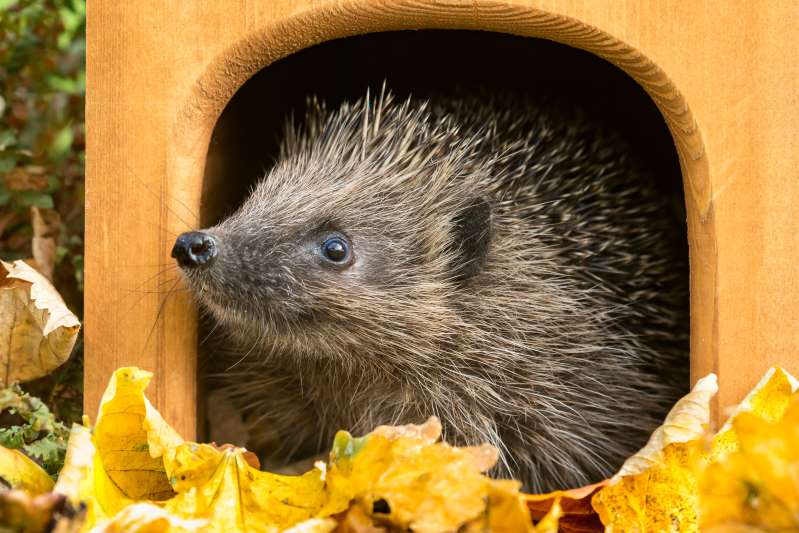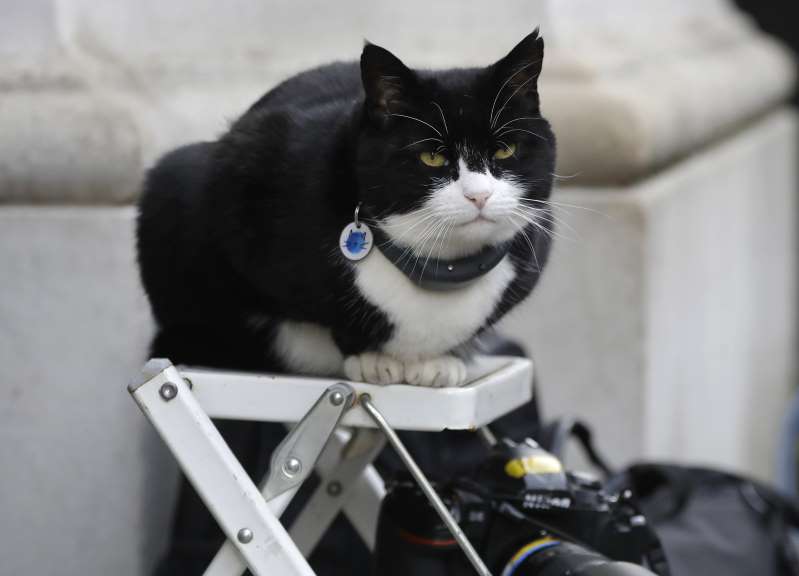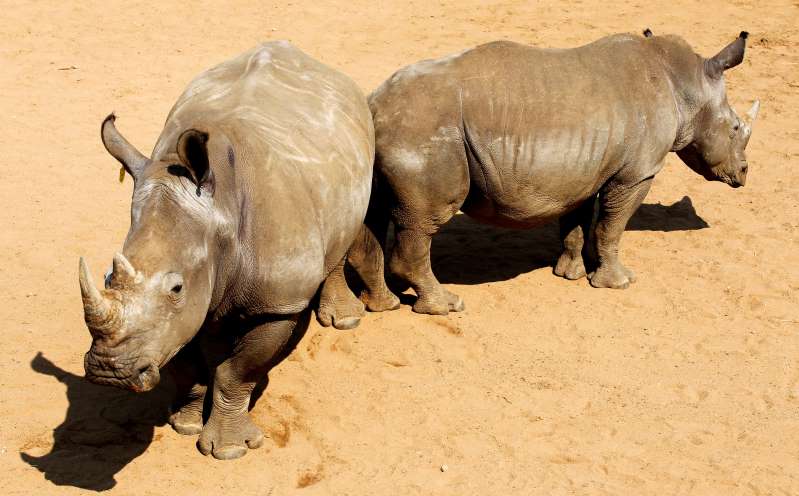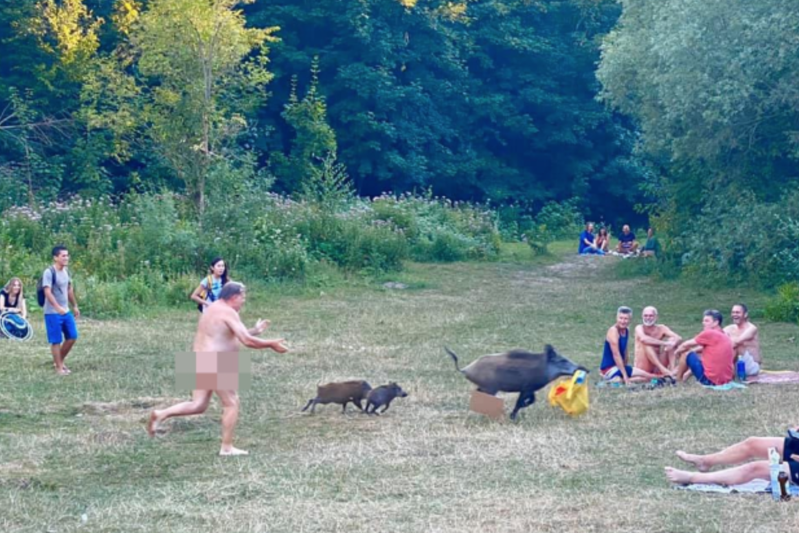British hedgehogs are now officially vulnerable to extinction, here's how you can help save them






British hedgehogs are now officially vulnerable to extinction, here's how you can help save them
According to the newly-published International Union for the Conservation of Nature’s (IUCN) Red List, British hedgehogs, among other species including the water vole, hazel dormouse, and wildcat, are at risk of extinction.
Compiled by Fiona Mathews, a professor of Environmental Biology at the University of Sussex, each mammals' case is assessed by population, the geographical range, fragmentation, decline or fluctuation, how small the population is and whether there is any quantitative analysis of extinction risk.
"The new Red List provides a very clear basis for prioritising funding and conservation efforts for the future. Twenty species — those classed as Threatened, Near Threatened, and Data Deficient — all need urgent attention," she told Helena Horton of The Telegraph.
"While we bemoan the demise of wildlife in other parts of the world, here in Britain we are managing to send even rodents towards extinction. Things have to change rapidly if we want our children and grandchildren to enjoy the wildlife we take for granted."
For many, it comes as no surprise that hedgehogs are in rapid decline. In 2017, an annual survey by BBC Gardening World Magazine revealed that 51 per cent of people has not seen a single hedgehog in their garden throughout the year, compared to 48 per cent in 2015; while more recent reports show no improvement in hedgehog numbers.

In 2018, the State of British Hedgehogs report suggested that hedgehog populations have halved in rural areas and declined by a third in urban districts since 2002.
Listing the main reasons for their dwindling numbers as intensification of agriculture, lack of prey availability, and higher speed limits on rural roads, it is now thought that one in ten children have never seen one trundling across the lawn.
'Recognition of the vulnerable status of the hedgehog is an opportunity,' said the British Hedgehog Preservation Society (BHPS) in response to the news. 'It will give impetus to those of us campaigning to protect the habitats that the hedgehog needs to thrive, and increase the awareness of the importance of connecting those habitats.'
The society are also calling on the government to increase the protection offered to the hedgehog under the Wildlife and Countryside Act by moving it to schedule 5, allowing the level of protection appropriate for such a keystone species in decline.
Similarly, Hedgehog Street - a UK-based campaign run in partnership with People’s Trust for Endangered Species - is ramping up the campaign to make gardens across the nation more wildlife friendly, by connecting each one with small 13cm square holes for hedgehogs to run through.

These runs are essential as hedgehogs will travel up to 12 miles in one night in their search for food.
Fay Vass, CEO of the BHPS said: “What people do on behalf of the hedgehog is amazing. The holes made in fences, the feeding, the hedgehog houses, the wildlife friendly planting, the removal of hazards - all makes such a difference locally.
“But it is not enough to rely on the good will of individuals to protect this important creature. We need the government to enforce wildlife friendly practices. From farming to development to transport - wildlife needs to be taken seriously.”
In 2018, the Telegraph's Kate Bradbury spoke to Simon Thompson, the Hedgehog Improvement Area (HIA) senior hedgehog officer, about the decline of Britain's favourite animal and methods that might help.
“There’s a strong link between the changing ways we use our gardens and hedgehog decline,” he says. “Gardens these days are often seen as an additional 'outdoor room’. They might have large areas of patio or decking, even
AstroTurf, and fewer plants, particularly native ones which attract more egg-laying moths and therefore caterpillars, an important food source for hedgehogs.”
By encouraging people to try simple remedies, to cut a hole in the bottom of the fence on either side of their garden, enabling hedgehogs to travel between them in search of food; leave areas of long grass; build open compost heaps; and make leaf and stick piles in which hedgehogs can nest, shelter and hibernate, Simon hopes that the nation will join forces to halt the decline. Action is imperative if we are to save this long-loved critter.
Tricks for a hedgehog friendly garden
Below are Ellie Harrison, formerly of BBC’s Wild About Your Garden, tips and tricks for a hedgehog haven.
Make sure there are gaps along garden boundaries; less than 20cm is all that is needed. Why make a hedgehog-friendly garden if none can get in?
Consider gardening as organically as you can to allow creepy crawlies to thrive. Garden chemicals have been a big problem. In our programme, I had a heated discussion with a group of understandably protective allotment growers on their use of slug pellets.
They had tried every alternative: coffee granules, brass tape, eggshells, beer and more, but the slugs still rampaged. I was newly returned from a hedgehog rescue centre where I had watched the death throes of one wretched individual that had ingested slug pellets, via a slug.
In the wild, hedgehogs will die from respiratory failure after suffering for many days. This one was lucky, it could be euthanised.
Try lying on the ground for a hedgehog’s view on where they can find cover in your garden.
You can offer fresh water and meaty pet food or chopped unsalted nuts, avoiding the bread and milk.
If you have a water feature, make sure it has gently sloping sides or add rocks for an escape route.
Check long grass before strimming or bonfires before lighting.
Install a hedgehog box. These make for important hideaways for hedgehogs to rest in.
Reference: The telegraph: Morgan Lawrence 3 days ago: 7th August 2020
'Chief mouser' Palmerston retires as UK's top diplomatic cat





'Chief mouser' Palmerston retires as UK's top diplomatic cat
LONDON (AP) — Time spent in lockdown was just superb for Palmerston, the chief mouser at the U.K. Foreign Office.
It was so good, in fact, that the cat has decided to leave sorting out international affairs to the human diplomats and retire to the countryside after four long, hard years on the job.
Palmerston made it official in a letter sent in his name to Simon McDonald, the office’s permanent under-secretary, which explained that he wanted more time “away from the limelight.’’
“I have found life away from the front line relaxed, quieter, and easier,” a letter signed with two paw prints said. It was posted on Twitter.
Palmerston, who is named after the longest-serving British Foreign Secretary, Lord Palmerston, arrived in April 2016 as a rescue cat. He had plenty of company, though sometimes less than smooth diplomatic relations with Larry, cat-in-residence at nearby 10 Downing Street.
The two were sometimes seen fighting in the street outside the British prime minister's home.

The letter from Palmerston, or @DiploMog’ as he is known on Twitter, said his service showed that “even those with four legs and fur have an important part to play in the U.K.’s global effort.”
“I have been delighted to meet representatives from all over the world, and I hope I have done you proud in putting the U.K.’s best foot or paw forward in such interaction,’’ the letter said.
His colleagues said he would be missed.
Jon Benjamin, director of the department’s Diplomatic Academy, wished him a “very happy retirement.''
“He left us a slightly chewed dead mouse next to my desk in @UKDipAcademy once,'' he tweeted, adding “we were of course not very grateful.”
Reference: Associated Press: 4 hrs ago: 7th August 2020
Rhino poaching in Namibia down 63% on tougher policing, penalties





Rhino poaching in Namibia down 63% on tougher policing, penalties
WINDHOEK, Aug 7 (Reuters) - Rhino poaching fell 63% year-on-year in Namibia, the ministry of environment said on Friday, citing intensified intelligence operations by authorities and tougher sentences and fines for poachers.
Elephant poaching, which takes places to a lesser extent, also decreased, with 2 incidents reported this year compared with 13 in 2019, the ministry said.
The southern African nation is home to the second largest white rhino population in the world after South Africa, non-profit organisation Save the Rhino says.
Namibia also holds one-third of the world's remaining black rhinos.

Rhino poaching has plagued the southern Africa region for decades, especially in neighbouring South Africa and Botswana, leading to anti-poaching programmes, including de-horning and strict policing.
Nambia has increased fines for poaching to 25,000,000 Namibian dollars (1.09 million pounds) from 200,000 and prison sentences have risen to 25 years from 20.
Rhinos are hunted and killed for their horns to feed rising demand, mostly in Asia, where affluent classes regard them as a status symbol. They are also used as medicine.
Spokesman for Namibia's Ministry of Environment, Forestry and Tourism, Romeo Muyanda, said rhino poaching had decreased from 46 in 2019 to 17 incidents so far in 2020.
Intensified ground and aerial patrols were the main reason, while collaboration with members of the public and the stiffer sentences for convicted poachers also helped bring about the decline.
"Another factor is the excellent collaboration with law enforcement agencies, such as the Namibian Police, the Namibian Defence Force and the Namibia Central Intelligence," the spokesman said.
The ban on international travel imposed in March in response to the coronavirus was not a big factor in the drop in poaching.
Reference: Reuters: By Nyasha and Nyaungwa 2 hrs ago: 7th August 2020: (Reporting by Nyasha Nyaungwa; editing by Mfuneko Toyana and Barbara Lewis)
Naked sunbather chases boar around German bathing spot after it snatches his laptop bag






Naked sunbather chases boar around German bathing spot after it snatches his laptop bag
It's not the sight most sunbathers would expect to see while relaxing by a lake on a summer's day.
But families were stunned when a naked man was seen sprinting through a bathing spot in Germany after a wild boar snatched a plastic bag containing his laptop.
Adele Landauer, an actor and life coach, took photos of the chase beside the Teufelssee lake — a popular bathing spot in the Grunwell forest in Berlin.
She captured the hilarious scene as the man scrambled to recover his computer from the boar, who was running around with two piglets in tow.
Ms Landauer described the man as a "hero" and said his focus was inspiring, adding: "This happens when you’re focused on your goals".

She said everyone nearby clapped when he got his bag back.
"Nature strikes back!" she wrote, adding that the man laughed it all off.
"He gave it his all, with not a stitch on," she said.
After she captured the moment, she said that she asked the man for permission to share the photos online. He found them hilarious and said yes, she added.
In Germany, there is a strong tradition of naturism, where people regularly strip off in outdoor public spaces. It is known as Freikörperkultur — "free body culture" — or FKK for short.
She said: "Yesterday at the lake in Berlin I saw a real hero.
"A female wild boar with two babies came out of the forest in order to search for food."
Ms Lauder said many people were lying on their towels "completely naked", adding that some were initially scared the wild boars seemed to be peaceful.
"After they ate a pizza from a backpack of a man who was taking a swim in the lake they were looking for a dessert," she said.
"They found this yellow bag and decided to take it away but the man who owned it realised it was the bag with his laptop.
"So, he was very focused and run behind the boars in order to get it back.
"Everyone of us adored him how focused he stayed and when he came back with his yellow bag in the hand we all clapped and congratulated him for his success."
Reference: Evening Standard: Rebecca Speare-Cole 5 hrs ago: 7th August 2020

 How to resolve AdBlock issue?
How to resolve AdBlock issue?